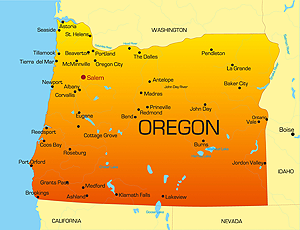A portal website bringing together vital information about natural gas and natural gas vehicles.
 | Oregon offers a 35% tax credit for businesses interested in building fueling infrastructure in the state. The state also offers a school bus grant and an alternative fuel loan program. The state exempts OEM natural gas and electric vehicles from requirements for pollution controls installed in vehicles. Oregon has imposed a Low Carbon Fuel Standard for all fuels and requires state agencies to purchase AFVs and use alternative fuels "to the maximum extent possible".
|
| Legislative Session Dates: | February 3 - March 7 |
| Legislature Website: | https://www.oregonlegislature.gov/ |
This state was last examined and updated in November, 2016.
